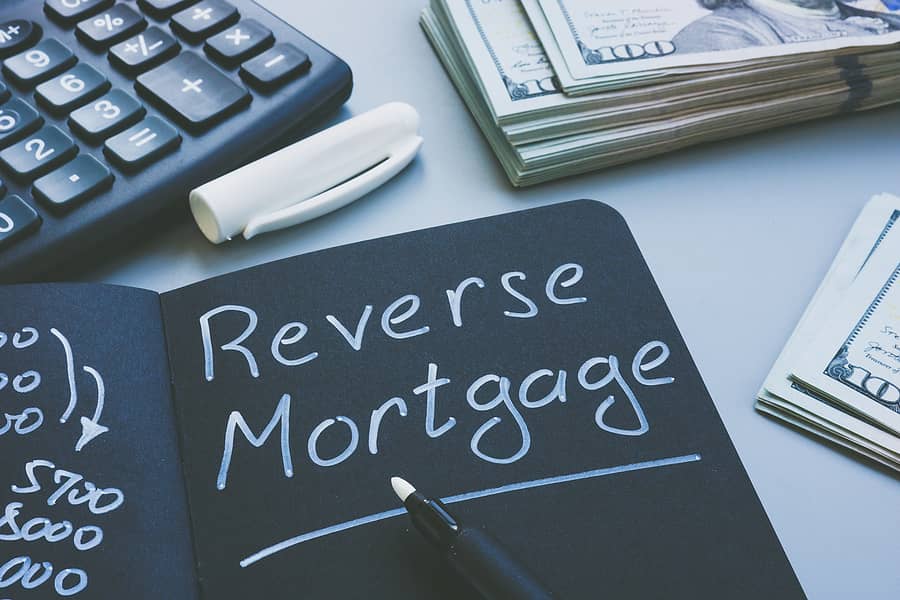Ontarian Homeowners have been affected by the pandemic in one way or another. Some have seen reduced hours, and many have faced increased household debt over the last year.
According to Statistics Canada, as of the third quarter of 2020, household debt increased. The proportion of household disposable income rose to 176.9 percent from 175.6 percent, but household debt increased as well. This translates to the equivalent of $1.77 in credit market debt for every dollar of household disposable income.
One of the biggest debts that Ontarians face is paying down a mortgage on their cherished home. Unlike other types of debts including credit card debt, personal loans, or car loans, having a mortgage is considered “good debt.” As a mortgage is paid down over time and the mortgage is decreasing on a property, the equity in the property is also increasing.
The property is appreciating in value as well. In other words, mortgage debt is a very wise investment. For those with considerable equity, funds are available to address financial concerns or longer financial goals.
This is particularly relevant for older homeowners that may be in a position to help out adult children or grandchildren, travel, cover needed renovations, or use equity to purchase a rental or vacation property.
Financial needs change over time. For those Ontarians who are 55 or older, financial concerns can be addressed by tapping into the hard-earned equity built up in their homes. Ultimately, owning your property mortgage-free will give you the most financial flexibility.
What Exactly Is a Reverse Mortgage?
Although there remain different home equity mortgage loan options available, Reverse Mortgages such as the Canadian Home Income Plan (CHIP) offered by HomeEquity Bank or the PATH home loan offered by Equitable Bank can be a great solution for those 55 and over.
So, what exactly is a Reverse mortgage? A reverse mortgage represents a home loan for homeowners who are 55 and older which does not require a monthly mortgage payment. The loan itself is not required to be paid off until the end of the negotiated end of the mortgage term. The minimum loan amount must be 25,000 dollars.
There are designated criteria that need to be met to qualify for either the PATH or CHIP reverse mortgage. An Ontario homeowner must be 55 or over to qualify, must own their own home, the home value must be at least 250,000 dollars, those on the title of the property must be also on the title of the reverse mortgage and the property must represent the primary residence of the applicants (must live in the property for a minimum of 6 months of the year.) The reverse mortgage allows an Ontario homeowner to tap into 55% of the appraised value of their home.
A reverse mortgage has the added advantage of being tax-free and will not need to be repaid until either you choose to move or sell the home. As in any secured mortgage loan, the equity in your house is used to assess the amount that can be taken out for the reverse mortgage and your house will serve as collateral for the loan.
What Are the Types of Reverse Mortgages?
Two financial institutions offer reverse mortgage options for Ontario Homeowners. When it comes to reverse mortgage options, HomeEquity Bank offers the Chip Reverse Mortgage which has been well advertised on both Canadian radio and TV stations. Another financial institution, Equity Bank, also offers reverse mortgage options for those 55 and older whose homes are paid for referred to as the PATH Reverse Mortgage
When choosing reverse mortgage options, generally there are two types of reverse mortgage options including taking out a mortgage in one lump sum or choosing the options income stream option which provides funds monthly which represents another income source.
Reverse Mortgages Pros?
So, what are some of the distinct advantages offered by reverse mortgages for older adults?
- Flexibility– The different payment plans allow for you to access your equity in one lump payment or provide for monthly payments. This flexibility in accessing funds will be able to suit your lifestyle and long-term financial needs.
- Tap into Available Funds– If you are very close to paying off your mortgage or own your home outright, the reverse mortgage allows you to access up to 55% of the value of your home which could result in access to considerable funds.
- You can Stay in Your Own Home- You will be able to enjoy the house that you have made home and developed so many memories in. You will also be able to take advantage of any appreciation in the price of your property.
- You Choose How to Spend the Money That You Receive– The reverse mortgage does not put any restrictions on how you choose to use your funds. This again speaks to the overall flexibility of this type of mortgage loan.
- No Need to Access Registered Accounts- You will not need to touch other registered accounts you may have such as Tax-Free Savings Accounts (TSFAs) or Registered Retirement Savings Accounts (RRSPs). Additionally, your payments from other retirement sources will not be impacted by taking out a reverse mortgage on your property.
- Tax-Friendly– The payments (or lump sum payment if you choose this option) are not taxed and you will not be making mortgage payments.
Reverse Mortgage Cons?
- Slightly Higher fees and Interest Rates– The fees and interest rates may be higher than traditional mortgages or lines of credit such as HELOCs. The interest rates do remain lower than other mortgages such as second mortgages and certainly lower than what most credit cards charge!
- Early Repayment Charge– If you choose to pay back the mortgage before the end of a period of five years you will face an Early Repayment Charge.
- Equity Has Already Been Accessed– You may not have the same ability to tap into further equity with a future loan as you are using some of this equity with the reverse mortgage.
- Estate planning may be impacted beneficiaries must pay off the loan and any interest owing if the owner on the title of the mortgage passes away.
Alternatives to a Reverse Mortgage?
There are always alternatives to reverse mortgages. Other home equity options remain available such as a Home Equity Line of Credit (HELOC) or a second mortgage, home equity loans, home renovation loans, bridge financing.
Although every mortgage loan may come with its particular drawbacks and unique advantages, the decision as to whether to take out a reverse mortgage is a personal one. Financial needs, plans, or retirement goals all come to play when determining if a reverse mortgage loan is the best option for you.
Mortgage Broker Can Help Steer You in the Right Direction
Mortgage Broker Store is very experienced in the many loan options that are available using the equity in your property. With a network of private lenders available to us, we are more than happy to point you in the right direction when deciding mortgage needs. Don’t hesitate to contact at your convenience to answer any concern you may have. Let your greatest asset work for you as hard as you have worked to own your property.



